Women in the Workplace: Embracing Equity

The UK job market is currently filled with intelligent and capable women, who still in 2023 earn less per hour on average than men. The recruitment industry is the core of workplace diversity and inclusion more than any other sector. Diversity, Equity, and Inclusion are the most talked about topics in the industry at present. However, many organisations are continuously facing lots of challenges related to the portrayal of women in the workforce. The 2023 equity initiative goes beyond ticking off a box or providing benefits at work. As the saying goes, "Be the change you want to see in the world", and the recruitment industry has been the force for change by valuing equity in the hiring system.
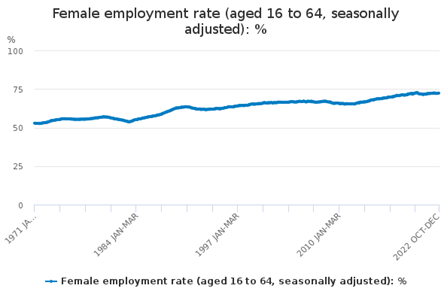
Source: Office For National Statistics
Understanding The Gender Gap
There has been progress in advancing gender equity in the workplace, but still there remains a gap. In the world of work, women continue to earn less, get promoted less frequently, and hold fewer leadership positions. According to the gender pay gap data1 eight out of ten organisations are still paying men more than women. Additionally, as per the data collected by the Government Equalities Office from around 10,000 organisations, about 78% 2 had favoured a gender pay gap in men's and women's salaries. The disclosure of salary figures has been accompanied by the revelation of the difference between the bonuses paid to women and men by organisation. For instance, it has been identified that in the finance sector, women are paid 35% 3 less than men, in terms of bonuses on average.
Why Do We Need to Promote Gender Equity?
According to Gender Equality Office4, In 2030 the UK economy could grow by around 2% or £55 billion by reducing gender gaps in labour market participation, Science, Technology, Engineering, and Mathematics (STEM) qualifications and wages.
- Increased Productivity: A workforce which has gender equity works better in many aspects it creates a cohesive working environment which results in a more productive workforce. According to a study by the University of Greenwich5, providing access to child care and elder care would free skilled women to return to work, which would benefit both women that are keen to get back to work as well as the organisations. Also, diversity of opinions promotes a more rounded approach, resulting in higher achievements and better decisions.
- Improved Growth and Innovation: "Innovation mindsets are fostered in an empowering, bias-free, and supportive gender-equal workplace." Employees should have the willingness to get inspiration from outside the organisation, the ability to work across the organisation, and the desire to experiment with new ideas keeping gender equity in mind.
- Diversified Views: Taking a more diverse approach will give your organisation a chance to gain insights from outside the mainstream which might be a missing link. Whenever there is a lack of diversity and equity, there will be a time when people with similar backgrounds will also share the same blind spots.
- Enhanced Organisation Reputation: In today’s time, consumers care about the organisation’s ethics and social responsibility. Lack of Diversity and gender equity are the top threats to creating and maintaining a positive working culture.
How To Promote Gender Equity in the workplace?
Promoting gender equity may initially appear daunting, requiring reorganising your work policies and culture. However, to create a more productive and cohesive team, it is essential to provide an environment where all employees feel secure, their merits are rewarded, and they feel empowered to raise issues. Few factors to keep in mind for promoting gender equity in your organisation:
- Develop Internal Targets for Achieving Gender Equity and Representation: Setting high-level goals does not stimulate action or assign responsibility. For example, general goals such as "we will change our culture to make it more inclusive" won't be practical unless specific targets accompany them. To ensure the success of a plan, it is necessary to have specific and measurable targets; this ensures the plans are time-bound, challenging, realistic, and easily monitored.
- Establish Diversity Taskforces or Diversity Leads: Appointing a diversity task force will ensure that every organisation member is responsible for diversity and inclusion efforts and outcomes. Diversity leads will be associated with the representation of women in the organisation. If people know that a task force is reviewing their decisions, employees will pay proper attention to the information decisions are based on, and there will be fewer biased decisions.
- Using Structured Interview for Recruitment and Promotions: Unstructured interviews can encourage unfair bias and influence decisions compared to structured interviews. If organisations used a structured interview approach, like asking the same questions without bias based on gender of the interviewee, it will encourage gender equity.
- Make Clear Expectations About Salary: According to research6, women are less likely to negotiate their pay. However, this can be a problem as women will have lower starting salaries on average than men, and these differences can endure over time.
- Improve Transparency About Promotion, Pay and Reward Processes:If there is no transparency and accountability, there are chances for decisions to become biased. It will be harder for employees to understand what is expected from them to make progress. Transparency about promotion and merits can reduce pay disparity.
What Women at MBA Have to Say About Equity in the Recruitment Industry?
When Asked About The Experience With The Industry,
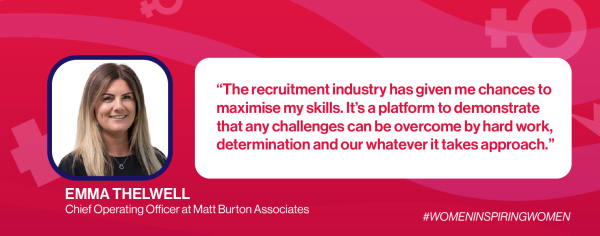
When Asked If There Were Any Challenges Faced Within The Industry,
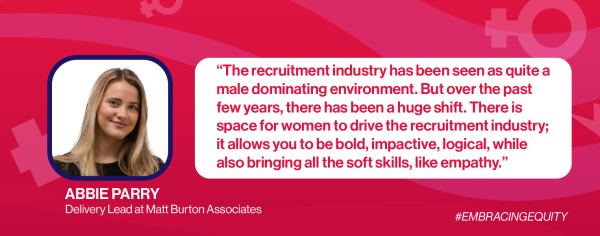
When Asked About The Tips They Want To Give To Young Generation,
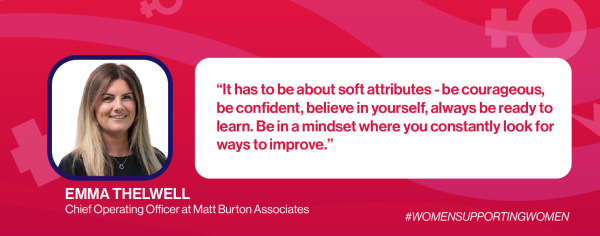
When Asked About The Experience At MBA,
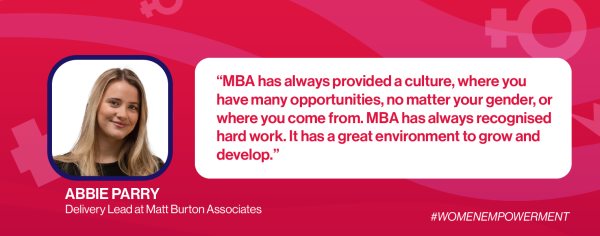
When Asked About The Challenges Women Face in the Workplace,
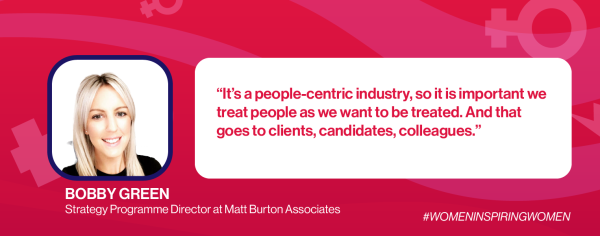
When Asked About The Tips They Want To Give To Young Generation,
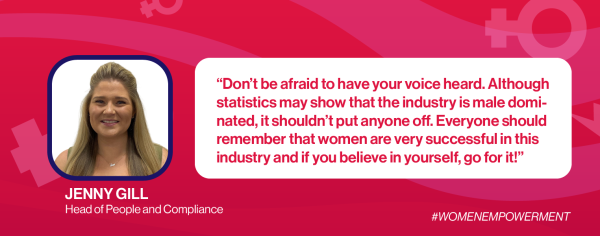
Conclusion
To close the gender gap, organisations must make equity a decisive objective, just as any other business objective. In addition, developing a culture that facilitates safe interaction is essential for business leaders to discuss issues such as inequality, sincerely and constructively. It is imperative that we lay the right grounds by ensuring we have the proper foundation for all the women joining the workplaces in the future. But we will have to make some structural changes to protect and advance equity at the forefront in the coming times.
Across all sectors, MBA is proud to say we work totally agnostic regarding our sourcing and selection. We are currently working very closely with our clients on their DE&I goals.
At MBA, we are committed to creating a welcoming environment for women of all backgrounds.
End notes
- Government Of UK: Understanding The Gender Pay Gap.
- BBC: Gender Pay Gap: Six Things We've Learnt
- BBC: Gender Pay Gap: Six Things We've Learnt
- HM Government: Gender Equality Map
- University Of Greenwich: Gender Equality Key To Solving The UK’s Productivity Crisis
- Org: Do Women Avoid Salary Negotiations? Evidence From A Large-Scale Natural Field Experiment